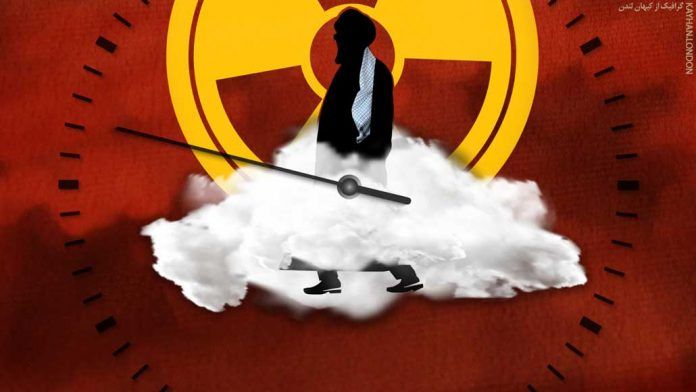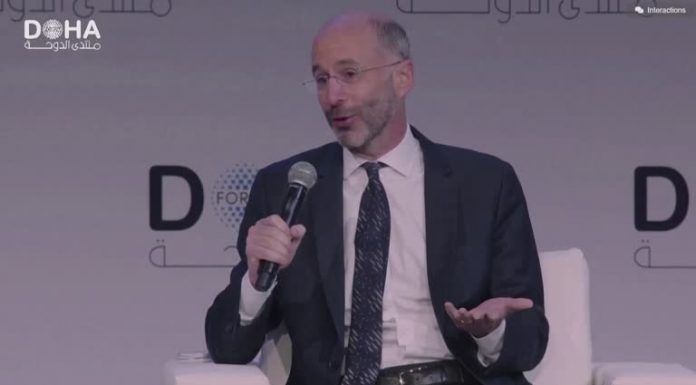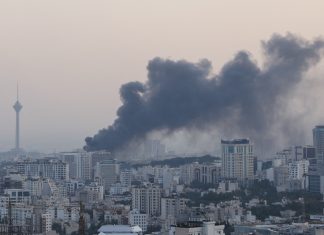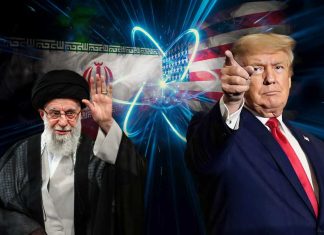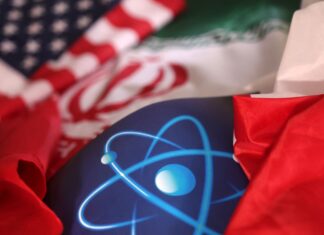By Ahmad Rafat
Negotiations in Vienna to revive the 2015 Joint Comprehensive Plan of Action (JCPOA), the Iran nuclear deal, have reached an impasse once again. Despite the optimism expressed by several parties involved in the talks, who are still hoping to reach a concrete agreement, “small unresolved issues” could still derail the process if the Islamic Republic does not back down from some of its demands.
In January, Robert Malley, the U.S. Special Representative for Iran and the lead negotiator at the Vienna talks, hinted that the U.S. could reverse former President Donald Trump’s 2019 decision and remove the Islamic Revolutionary Guards Corps (IRGC) from its list of foreign terrorist organizations.
However, Mr. Malley retracted his comments after returning to Washington.
Speaking at the 2022 Doha Security Forum recently, Malley said the IRGC would remain on the U.S. list of foreign terrorist organizations even if the Vienna talks resulted in an agreement, adding that the U.S. would not lift the current sanctions on the group and its leaders.
Malley was less hopeful that the Vienna negotiations would have a positive outcome.
“I cannot be confident that [an agreement] is imminent,” he said. “A few months ago, we thought we were pretty close.”
Pressure from U.S. allies in the region, including Israel, Saudi Arabia, Bahrain, the United Arab Emirates, Egypt, Jordan, and Democratic and Republican members of Congress, persuaded President Joe Biden and his administration to reverse their decision on removing the IRGC from the list of foreign terrorist organizations and lifting sanctions on the group and its senior commanders.
“We are united in strong opposition to any move to legitimize the IRGC’s reckless, destabilizing, and antisemitic actions through the Middle East,” a letter sent by 80 Republic members of Congress to the U.S. Secretary of State Antony Blinken said. “The IRGC continues to actively participate in acts of terror and destabilizing actions in the region, particularly against one of our closest allies, Israel.”
The ball is in Iran’s court right now. It has to decide whether to accept that sanctions will remain on the IRGC or continue to waste time in Vienna.
Iranian Foreign Minister Hossein-Amir Abdollahian’s recent remarks suggest that Iran may not insist on lifting sanctions on the IRGC as a condition for striking a new deal.
“Some senior IRGC commanders have said that if the Vienna talks result in an agreement that protects the rights of the Iranian people, then we should not insist that sanctions on the IRGC be lifted,” Mr. Abdollahian said.
Abdollahian’s comments angered many ultra-conservative supporters of Iran’s Supreme Leader Ayatollah Ali Khamenei, including the managing editor of the Tehran-based hardline Kayhan newspaper, Hossein Shariatmadari, who accused the Iranian Foreign Ministry of not complying with the state’s “red lines.”
Foreign Minister Abdollahian quickly clarified his position by saying that he would “never cross those red lines.”
It is noteworthy that to ensure the survival of the Islamic Republic, Mr. Khamenei has crossed his redlines many times, as did the founder of the Islamic Republic, the late Ayatollah Ruhollah Khomeini before him.
The uncertain fate of the JCPOA forced the EU’s chief negotiator at the Vienna negotiations, Enrique Mora, to travel to Tehran for an emergency meeting on March 27 and fly to Washington shortly after arriving back in Brussels. He hopes to receive guarantees that the talks will continue irrespective of whether sanctions remain on the IRGC.
Meanwhile, comprehensive sanctions imposed on Russia by the international community after it attacked Ukraine could affect the Vienna talks, given that Moscow has played a crucial role in rebooting the JCPOA.
An agreement in Vienna would lift the oil embargo and other sanctions on Iran’s energy sector. As a result, Iran’s oil export could reach 2.5 million barrels a day (b/d). Russia was a principal supporter of the Vienna talks, but after it invaded Ukraine, it did not consider the revival of the JCPOA to be in its interest.
Oil prices, which have risen since stringent economic sanctions on Russia went into effect after the invasion of Ukraine, would come down if Iran enters the oil and gas market again, which would be unacceptable for Moscow.
Russia hopes for the Vienna talks to continue without resulting in any concrete agreement to keep the price of crude oil above $100 a barrel. That would prevent the West, mainly European countries, from finding a substitute for Russian oil and gas.

